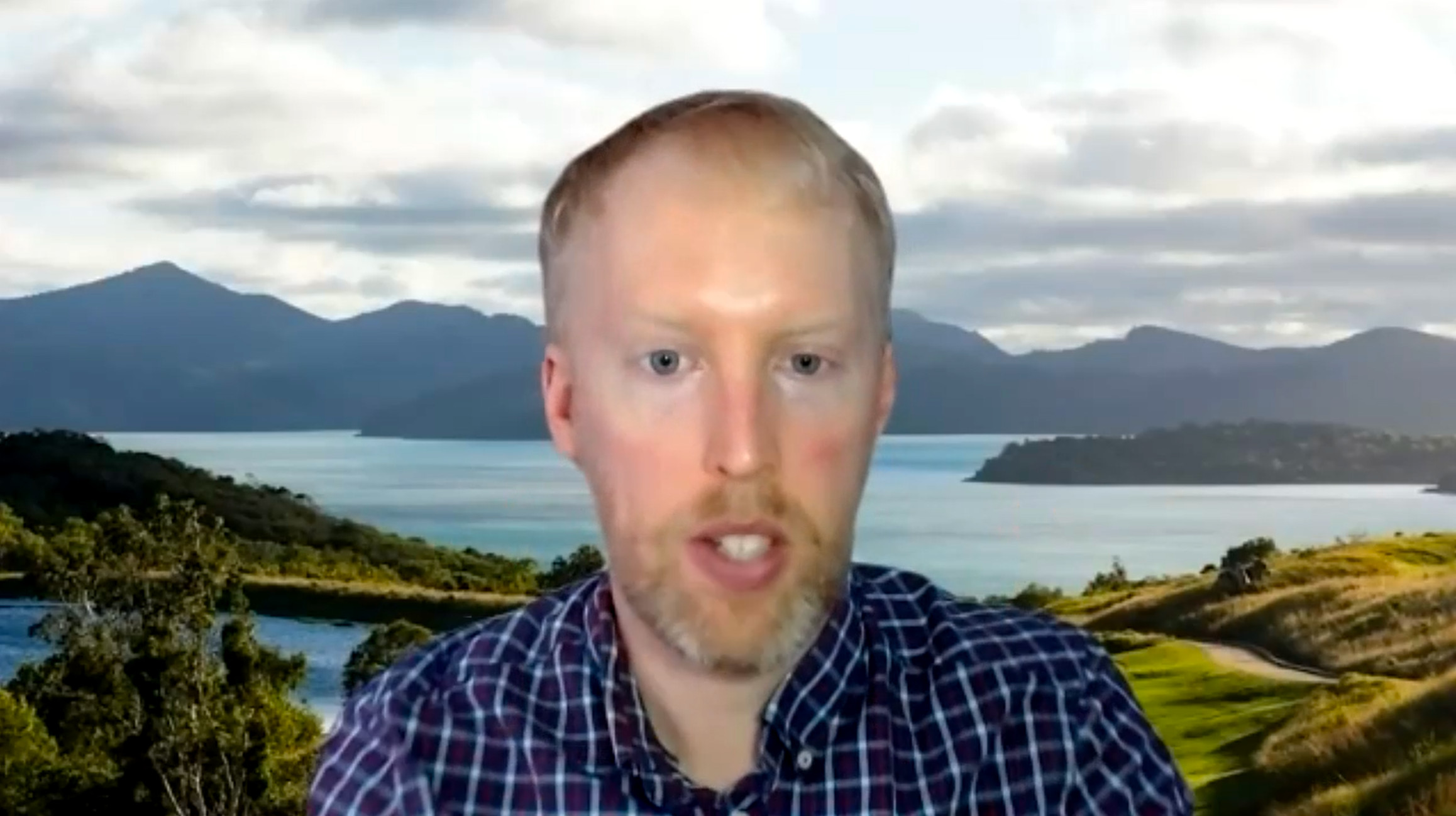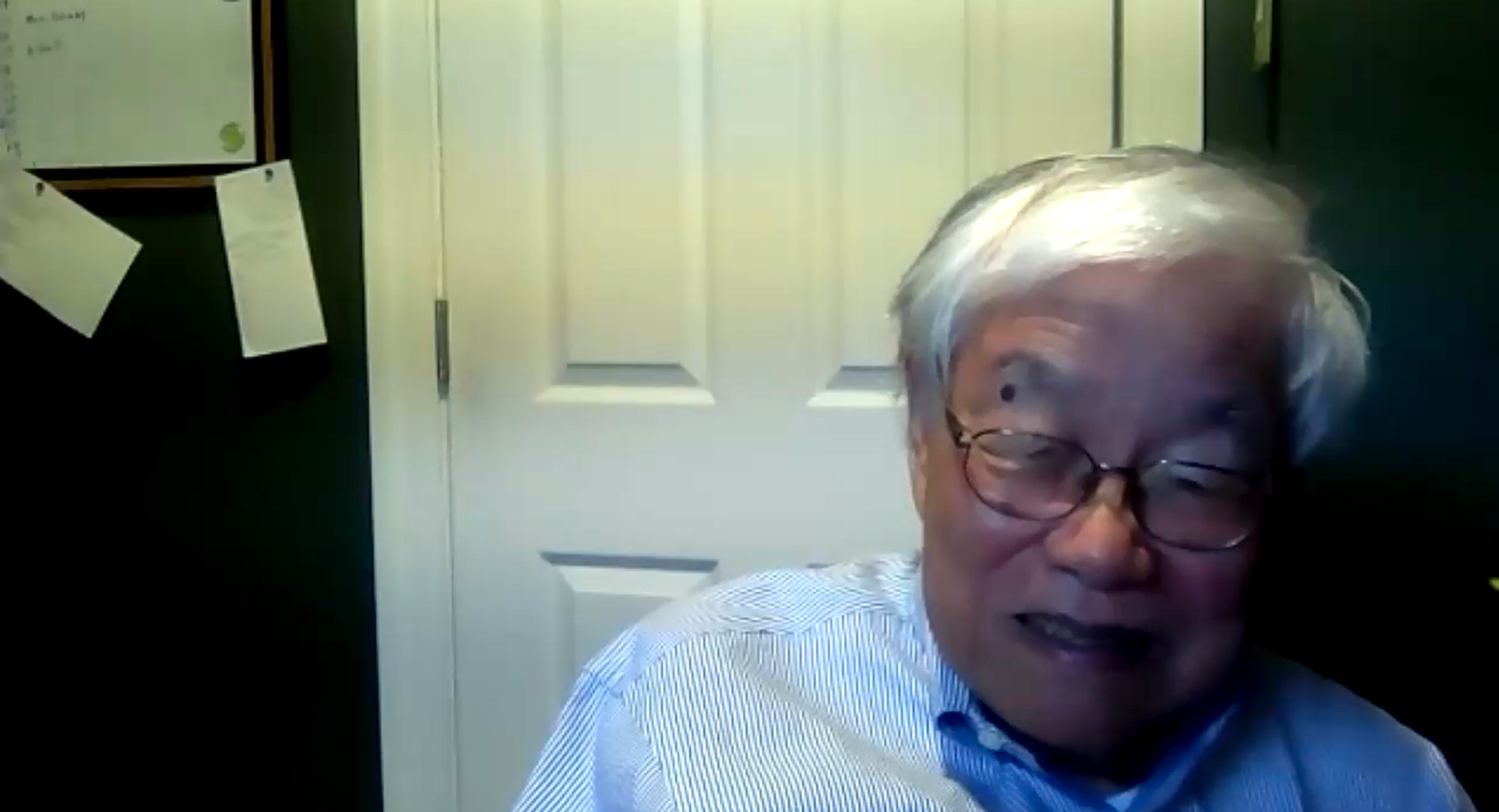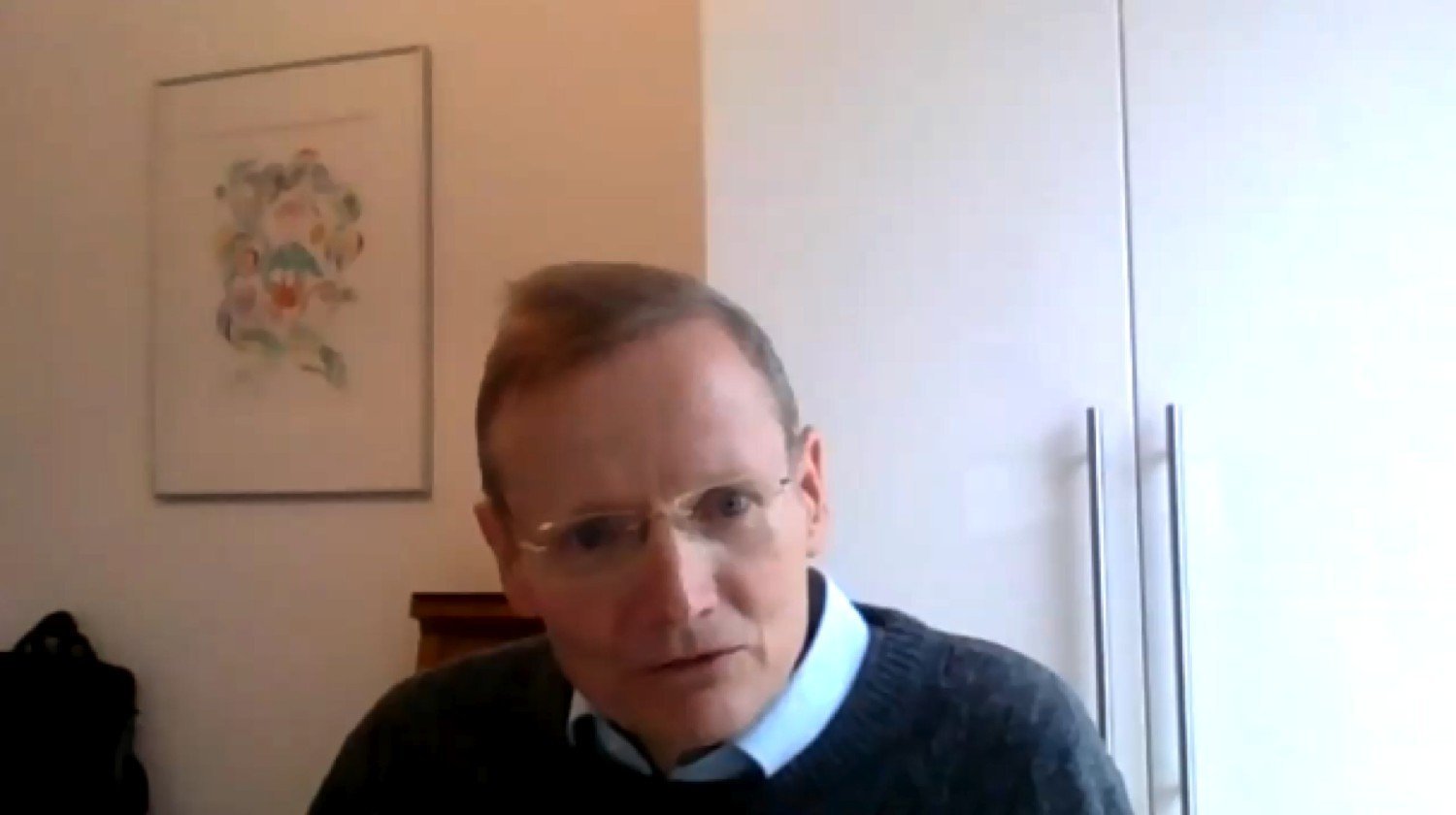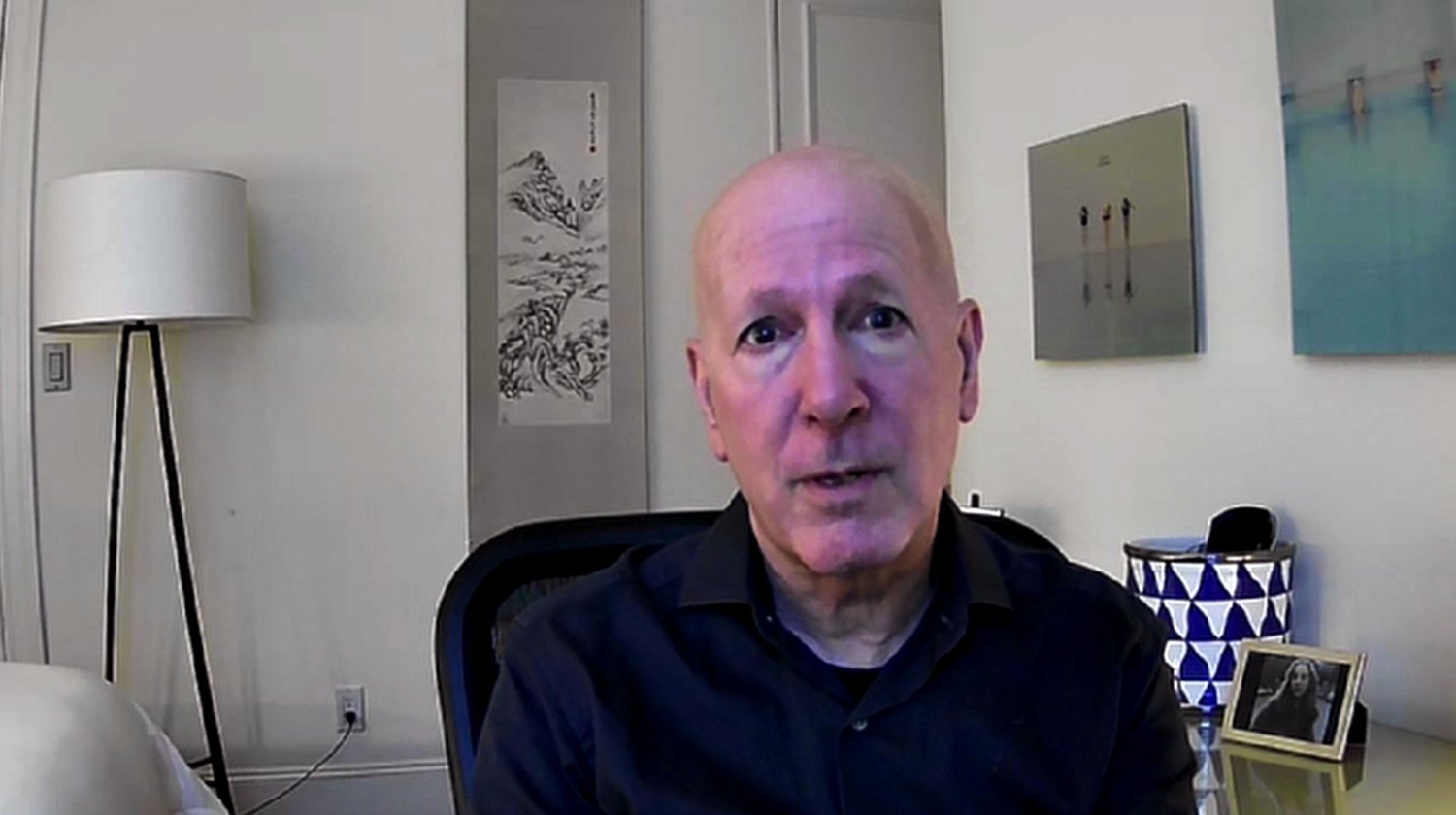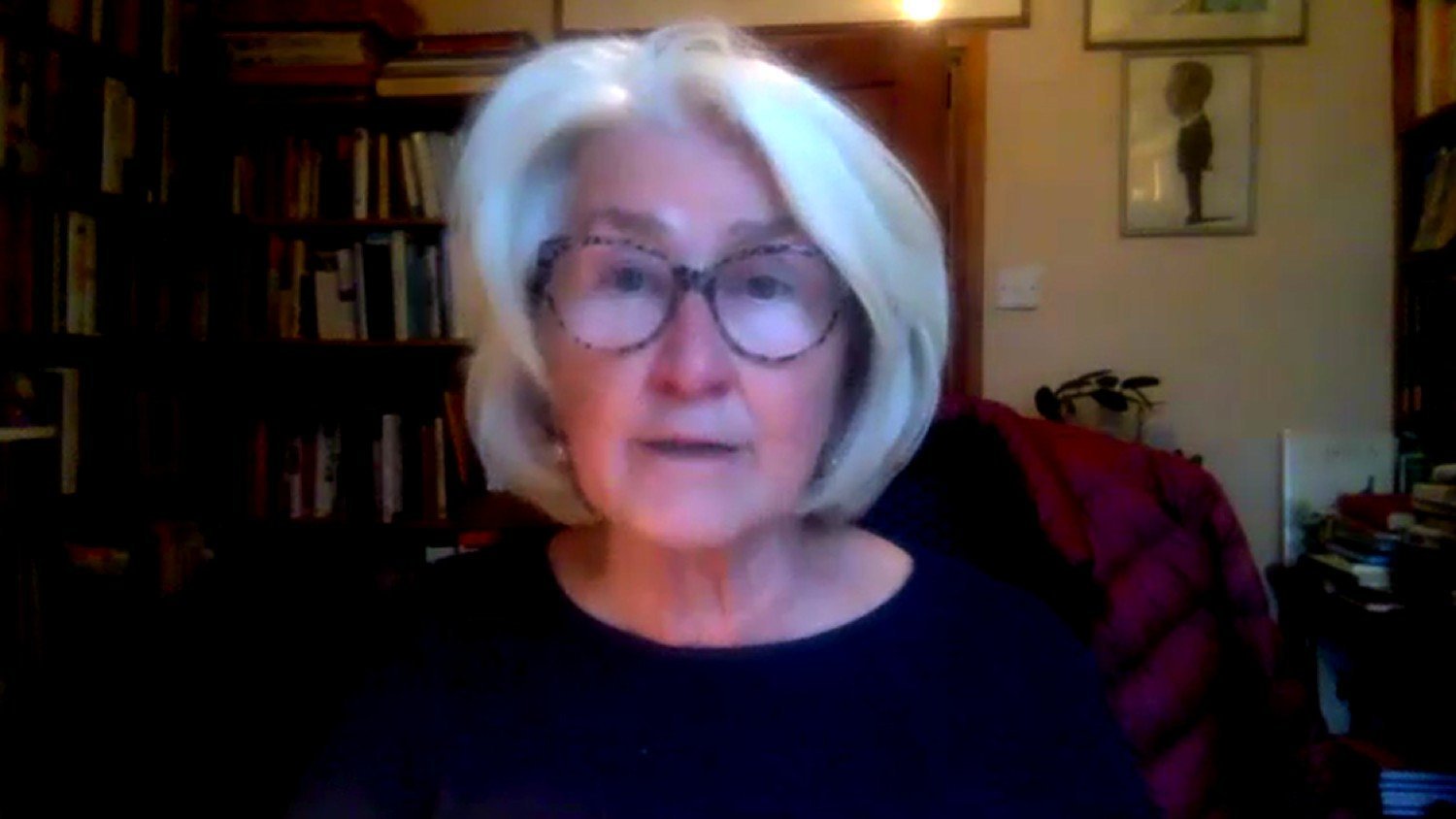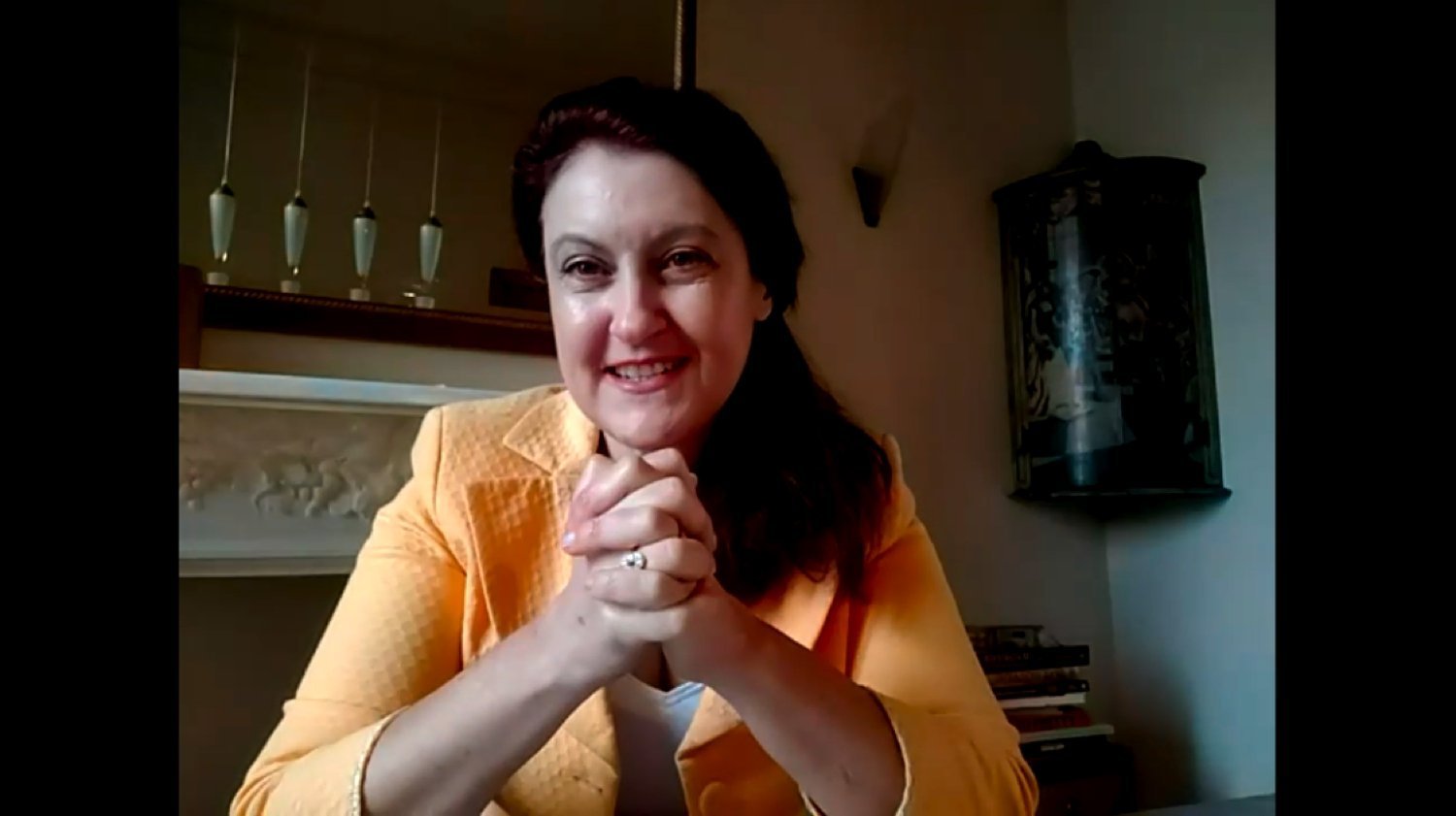Claudia Chwalisz
Polish. Innovative Citizen Participation Lead, OECD Open Government Unit
1. Why does economics matter?
Thank you, William, for having me. So why does economics matter? Well, because it’s one of the ways in which we try to understand the world, both individually and collectively. Economics really touches on the questions about how we want to figure out how to live a good life. What do we value? How can we achieve prosperity? But for me, it’s really just one of the ways that we try to answer and understand these questions. It’s not possible to divorce economics from other disciplines like philosophy, like politics, like history, because deciding what we value, to me anyway, is ultimately a moral question, and I think also one that merits and deserves and really needs democratic public debate as well.
So economics matters because these questions are at the heart of the most vital existential questions that affect everybody’s lives. But it’s only one part of a bigger picture. And I think we only get a more holistic sense of the world by taking a more transdisciplinary approach which recognizes complexity and that everything is interconnected. And when I was preparing for this interview I was reminded of a quote that I really like by John Muir, which captures this well, which says “when we try to pick out anything by itself, we find it hitched to everything else in the universe.” And I think that’s very true.
2. What are the differences between economic science (academic economics) and economic engineering (policymaking)?
It’s an interesting question and an interesting way to frame it. I first have a bit of an issue with the term “science” being used to describe economics. In my view, part of the problem with economics in recent decades has been this turn towards seeing it as a scientific discipline. But it’s not like physics or biology, which have theories that can be tested and falsified or verified. As I was just saying in my previous answer, economics is intimately intertwined with politics, with philosophy, with history, and economists should be working with scientists, of course, but that’s not the same thing as calling economics a science.
And this turn towards treating economics as a science is part of why I think we’re obsessed with GDP and with growth rates, because these are things that we continually measure and track and model, and it certainly has an impact on what you called economic engineering - though I’m not I would use the term “engineering” either - in reference to policy. The policy world, I would say, is more political than academia, but I think it’s heavily influenced by it, and I think it’s hard to change the approach to economic policymaking while there is a dominant paradigm in academia that prevails.
And so, for example, you have the Beyond GDP movement, which has been embraced for over a decade, I would say, by the OECD and by the European Commission, the World Economic Forum, all sorts of other institutions have talked about it. But to me it’s hard to see how any of these new indicators that are perhaps more encompassing of social and environmental factors are actually really being used to guide economic policy decisions, which ultimately are being driven largely by GDP and growth rates. I think that’s problematic because the things that matter to what can be considered a good life and what people value are not easy to measure and not easy to put into indicators.
So when we think about things like identity and belonging and purpose, friendship, love, self-actualization, these are things that are all necessary for us to actually be in a good psychological state of health, and psychological health is also one of those main domains of human functioning which would be part of a much more holistic framework about “what is prosperity?” So personally, I find Tim Jackson’s framework about this, seeing prosperity as health that he describes in “Post Growth”, particularly compelling. These five domains of psychological, physiological, spiritual, sexual, and social health are all vitally important, and what we need to be seeking is rather a balance between them, not always more, but balance.
And it’s a very different notion than when we’re in a dominant economic paradigm that’s always about more and more accumulation, more wealth, more prosperity. And of course more growth is necessary to a certain point to lift people out of poverty, but after a certain point I do find the argument compelling that prosperity is not about accumulating just more wealth, but it’s about trying to seek that balance between these five domains. And I find that these sorts of discussions are still largely missing from most academic but also policy discussions about economic policy today.
3. What role does economics play in society? Does it serve the common good?
It’s a good question as well. So I think in the past four, five decades or so in particular, the role of economics as a discipline has taken, in my view, a rather disproportionate base in what were once considered wider philosophical and political debates about how to live a good and virtuous life and what we want our society to be, what values should be at the heart of our society. And as I was saying earlier, GDP and growth rates are in the centre piece, and the myth that as long as the economy continues to expand, life will be better for everyone prevails.
But we live in a finite world and we inhabit an animate Earth and we cannot keep slowly killing it for the sake of the myth of growth. Which isn’t to say, of course, that economic growth hasn’t brought affluence, hasn’t lifted people out of poverty, that there hasn’t been enormous progress when it comes to things like medicine and nutrition, connectivity, flight, et cetera. Of course there has. But it’s also led to the destruction of the planet, and it’s led us to ignore our relationship with nature, the living Earth, destroying its seeds and its oceans and its rivers and forests, killing insects and birds and wildlife.
We’ve been ravaging biodiversity, messing up ecosystems. And again, I go back to that quote by John Muir that I mentioned earlier, “when we try to pick out anything by itself, we find it hitched to everything else in the universe.” So not to mention that beyond that, our current economic model has increased inequalities and encouraged more of a consumption mindset with all sorts of other side effects to it, such as our obesity epidemic, growing social isolation and loneliness, also political polarization if we bring things back to the political sphere.
So your second question, then, about how economics can serve the common good, I think actually needs to be brought back to become a more essential question, although I would maybe just precise that with an extended notion of what you mean by the common good, though, because to me it’s still a rather human-centered notion. But we only exist and thrive if the planet exists and thrives. So perhaps economists should be more inspired by scientists. Thinking back to the previous question just now, but in the sense that I find that many scientists often talk about the wonders and the beauty and the awe and the sublime of the natural world, the primordial Earth and even the cosmos.
So I suppose I’m suggesting that economics should serve the common good of the people, but also the planet and not in some sort of abstract sense, but in a real and tangible way that would more fundamentally actually change how we live.
4. Economics provides answers to problems related to markets, efficiency, profits, consumption and economic growth. Does economics do a good job in addressing the other issues people care about: climate change and the wider environment, the role of technology in society, issues of race and class, pandemics, etc.?
I guess this is a nice continuation from the previous question, because I really think precisely not. In my view, there’s been that rather narrow focus on growth, on market-based solutions to issues like climate change, which I think end up detracting from the moral questions at the heart of what it should be about.
This market-based approach means that many of the wider problems that you just mentioned get framed in a way which precisely miss the point. So, for example, on climate change the huge amount of discussion about carbon pricing is abstract, far removed from the much harder, but much more urgent political decisions necessary to take action to actually fundamentally change the systems, to produce less and to consume less, to think about infrastructure and vehicles and energy consumption and city planning in completely different ways, and to factoring changes that are needed to individuals and also businesses and organizations’ behaviours.
So I think economics fails to address issues like climate and gender and tech when it treats them in isolation as purely economic problems, rather than taking that more transdisciplinary approach with other disciplines like politics and biology, physics, philosophy, psychology, art, even. The other thing that I would add is that economics also fails to address some of those broader questions because it really treats people and sees people as consumers first and foremost, rather than as citizens in that civic sense of the word. And this has implications, then, for what actually motivates people. What is their role in society? How should we empower them? What is their agency? And so on. So to me, that distinction between consumers and citizens is also at the crux of it.
5. As we live in an age of economics and economists – in which economic developments feature prominently in our lives and economists have major influence over a wide range of policy and people – should economists be held accountable for their advice?
It’s an interesting question about accountability. I will answer it, but first I think that the heart of the problem, though, is not actually the issue of accountability, but that economists have a major influence over a wide range of policy issues in a way that has never been the case before. So the homogeneity of people that are involved in policymaking, and that economists now prevail, has no doubt had a huge influence on the nature of many policy decisions that have been taken in recent decades.
I think technocracy has set a vortex, and I think taken the public debate out of many public decisions, many political decisions, so in some ways it’s no wonder that there’s now a populist revolt and many people feel like their voice doesn’t count in public decisions taken that affect our lives, because they don’t count. Their voices don’t count. There’s a really good and important study that Martin Gilens and Benjamin Page published, in the American context, a few years ago, which showed that economic elites and organized business groups have a substantial impact on government policy, while average citizens and broader mass-based interest groups have none.
And I would not be surprised if these findings were actually replicated in other countries as well. And it’s shocking and it’s an important thing to keep in mind, but we also need to remember that it hasn’t always been this way. For instance, if we think about the New Deal, there was a huge diversity of people involved in crafting it. So most people were not economic PhDs. Many, if not most of them, didn’t even have a university degree. I think it’s in Michael Sandel’s book the Tyranny of Merit, where he really goes into some depth of describing this.
But can we even imagine that today? So personally, I think it needs to change. And it’s not just less economists, but I think less elite of all kinds that should be dominating policy decision. If we go back to what we were discussing at the start, about economic decisions ultimately being about values, and so also about morals and ethics and what kind of society we want, then these are political questions, and they also need broad deliberation. And it’s why everyday people need to be involved much more directly in shaping and influencing economic policies.
Just to clarify, though, it doesn’t mean that there’s no goal for economic experts. If we think about a shift to putting citizens more at the heart of this, it’s just their role changes. If we let everyday people be in the driver’s seat and let them be the judges of the evidence that economists present to them in light of how that stacks up vis-a-vis their own personal, everyday lived experiences, then I think we see where the discrepancies come up between some of the theories and the modeling, and then peoples’ lived experiences of the economy.
And I guess my own work on deliberative democracy has shown that everyday people are more than capable and competent of understanding complex issues like economic issues. They’re able to reason with the public good in mind. They’re able to come up with concrete, very complex policy proposals. It’s just about creating the conditions that bring together this diversity of people that gives them the time and the resources to be able to access all this evidence, to look at it from different angles, to ask questions of experts, to have the time to deliberate together and work toward shared recommendations.
So at the OECD, I’ve looked into over 400 or so of these sorts of examples of deliberate processes, and I’m really convinced that we would have different economic policy decisions if everyday people were more intimately involved in their creation.
6. Does economics explain Capitalism? How would you define Capitalism?
Well, you say changing track a bit, but actually I don’t think that economics alone explains capitalism. Politics plays a big part of it, too. And actually a historical perspective is also necessary to understand how a capitalist system came to dominate globally. So, there’s an academic definition of capitalism which I’m most of your interviewees have pulled out, about a system where most means of production are privately owned and production and income are distributed via markets.
But then there’s how we actually experience and live in a capitalist system, a system that treat humans as resources. That modifies work, that has concentrated power in the hands of a few. And also for the past few decades, an increasingly important part of the capitalist system is the financial economy, who’s functioning relies in part on at least the vast majority of people not actually fully understanding how it works, but which also gilds purely with transactions that don’t even have a physical aspect to them, of the non-physical financial assets, so meaning that people are making huge amounts of money by trading these non-physical assets.
We’ve even created the term “real economy” to distinguish between these two things. And so it’s why when we talked about inequality, it’s actually wealth inequality rather than income inequality. That’s a big issue and has been getting worse over time, as Piketty has shown us with historical prosperity. And again, why I think history and then also politics come back into the picture. So in short, I think that economics alone doesn’t explain capitalism, and that, again, we need that more transdisciplinary and historical approach as well to understand it.
7. No human system to date has so far been able to endure indefinitely - not ancient Egypt or Rome, not Feudal China or Europe, not the USSR. What about global Capitalism: can it survive in its current form?
Well, I think the short answer to that is no. But to elaborate a little, I think, as you say, there has always been an evolution between different kinds of systems and I think that capitalism today is certainly reaching its limits, and probably has been for some time now.
We live, again, in a finite planet with finite resources, and even though the green growth chorus is somewhat loud, I think that the post-growth considerations are also starting to be - and personally I think should be - taken seriously, too. So questions about what we value need to be at the heart of deciding what capitalism is replaced by.
So for instance, if we value biodiversity, protecting our beautiful and also incredibly useful and life-giving trees and plants and wildlife and insects, if we treat the Earth as what it is, our animate home, then a capitalist system which exploits it while calculating carbon prices I don’t think can be the future.
If we want a society where work is decommodified, where those who we label as essential workers are valued and recognized for the essential role that they play, so where nurses and teachers and cleaners are paid more than, for instance, investment bankers, then I don’t think that a capitalist system can be a future. If we prioritize balance, as I was saying earlier, so balanced between the psychological, physiological spiritual, sexual and social health as another way of seeing what is prosperity, then again I don’t think it’s by focusing on growth rates and GDP in a capitalist system that we’re going to actually be able to change structures and systems to put that way of thinking at the heart of it.
And going back to another theme that has come up over these questions, I also think that it’s hard for there to be a radical change in the economic system without an equally radical change in the democratic system. So a system were public decisions about what we value, how we want to live, what kind of society and what kind of planet we want, are taken today via parties and politicians and elections that have a whole set of incentives that prioritize short-termism and reelection over other things.
And I think part of what are preventing the hard choices that we need for the long term are being taken. So it’s hard to see how we can change that economic system without also changing the political and the democratic system in which those decisions are needing to be taken.
8. Is Capitalism, or whatever we should call the current system, the best one to serve the needs of humanity, or can we imagine another one?
I think you won’t be surprised to hear me say that I think we could imagine another one, and I think not only can we, but I think we should and we need to imagine another one, another economic but also another democratic system designed with another set of incentives other than profit and efficiency and productivity and short-termism and reelection. I think that we have plenty of sources of inspiration actually to look in different pockets of the world, where we see economic democracy is thriving. For instance, and all sorts of cooperatives and organizations that are taking more of a commons-based approach to an organization, theories about mutualism and the commons are also giving us some food for thought.
And then I guess on the democratic side, which is much more my area of expertise, we are seeing incredible amounts of democratic innovation across the globe and also at all levels of government. So in just my recent OECD work where I looked at over 400 examples of things like citizens assemblies and citizens juries, where we have a randomly selected group of broadly representative people from society who are tasked with developing complex policy proposals to complex policy problems. So dealing with issues like, taking a few real examples, ten year, $5 billion strategic plans, third-year infrastructure investment strategies.
How do we deal with hate speech and disinformation online? What should be our country’s foreign policy? How can we reduce greenhouse gas emissions by 30% by 2030? These are all examples of the kinds of topics tackled by these sorts of processes just in years. But actually, what I think is most exciting is not even just these one-off examples like we’re seeing loads of, but what inspires me most is seeing really ambitious public authorities that are experimenting with new permanent democratic institutions, which are what are starting to change that relationship between citizens and governments in a much more fundamental way.
So examples, for instance, like Ostbelgien, which is the German speaking region of Belgium, where in 2019 the regional Parliament in that region voted unanimously to put in place a Citizens Council, which is comprised of 24 randomly selected citizens that have an agenda-setting mandate. It’s up to that Citizens Council to decide on what should be the two or three issues every year that then get put to ad hoc citizens assemblies. And each of those citizens assemblies, it’s now in the regulation that the recommendations need to be debated at least twice by the Parliament, and then a second mandate of that Citizens Council is to monitor the implementation of all this.
So you can see how this actually starts to much more fundamentally change the nature of what issues are even being brought to the table and then the sorts of ideas and recommendations that are being put forward. So, for instance, the very first topic that the Citizens Council brought up to put to a citizens assembly was how can we improve the working conditions of healthcare workers? This was pre-COVID, but I would say that it’s an example of why you can trust citizens to come up with really apt and important issues that should be talked about, and perhaps thinking in that more longterm and preemptive way before we were facing this crisis.
But just to add on a tiny bit here, because Ostbelgien is indeed a tiny region of only 80 000 people, but then this model of what they’ve been doing has now inspired the city of Paris to establish a permanent citizens assembly, which the details of it all will be released this autumn. So a city of 2 million people in the heart of Europe is also another scale of democratic experimentation for these sorts of ideas. And I’ve been looking at many other examples like this in the new OECD paper that we’re going to publish really shortly that has eight different models of deliberative democracy becoming a more permanent feature of how democracies function like those two examples that I just gave now.
Obviously I don’t think that these are all of the answers. We obviously need to have more reflection, more conversations, and I would say also with broader groups of people, not just experts and elites, about how we can transition from a capitalist model. But I think we do have some fruitful places that we start at.

